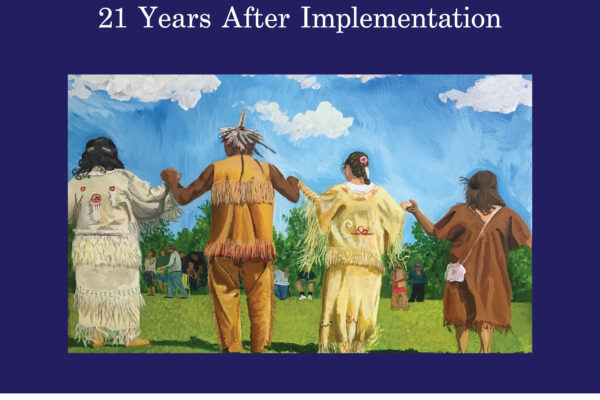Indigenous Justice
Indigenous Justice encompasses a multitude of racial, political, economic, and environmental issues. We are committed to supporting tribal communities, and following their lead, as they work to uphold their sovereignty, autonomy, and dignity.

Indigenous Justice encompasses a multitude of racial, political, economic, and environmental issues. We are committed to supporting tribal communities, and following their lead, as they work to uphold their sovereignty, autonomy, and dignity. Our nation is founded on colonialism—a powerful method of control and erasure—and the effects of colonialism permeate all of our government structures and institutions. As we center Indigenous voices and honor their experiences, we must further examine and dismantle the discrimination built into our political, economic, and social institutions.
An essential part of Indigenous Justice is restoring tribal sovereignty to Tribal nations. Tribal sovereignty is the inherent right of a tribe to govern their land and sustain traditional practices without outside interference. Current efforts in Maine to recognize tribal sovereignty center around amending the Maine Indian Claims Settlement Act of 1980 (“Settlement Act”). This law dramatically limits the rights of the Houlton Band of Maliseet Indians, Passamaquoddy Tribe, Penobscot Nation, and Mi’kmaq Nation--collectively known as the Wabanaki tribes. As a federally recognized tribe, the right to self-govern is protected under federal law. However, the Settlements Act denies most rights held by other federally recognized tribes across the United States and requires every transfer of land to be approved by Congress. Tribal sovereignty in Maine requires undoing the harmful effects of this law.
Dismantling colonial systems of oppression requires all of us to center Indigenous voices and integrate Indigenous Justice into our advocacy. As the ACLU of Maine, we will continue to support legislation and community action that restores sovereignty to the Wabanaki Nations.
The Latest

Abbe Museum, ACLU of Maine, Maine Indian Tribal-State Commission and Wabanaki Alliance Release Report About Implementation of 2001 Wabanaki Studies Law

Wabanaki Studies Law: 21 Years After Implementation

ACLU of Maine Statement Supporting Recommendations of the Permanent Commission on the Status of Racial, Indigenous and Maine Tribal Populations
Stay Informed
Sign up to be the first to hear about how to take action.
By completing this form, I agree to receive occasional emails per the terms of the ACLU’s privacy statement.
By completing this form, I agree to receive occasional emails per the terms of the ACLU’s privacy statement.

